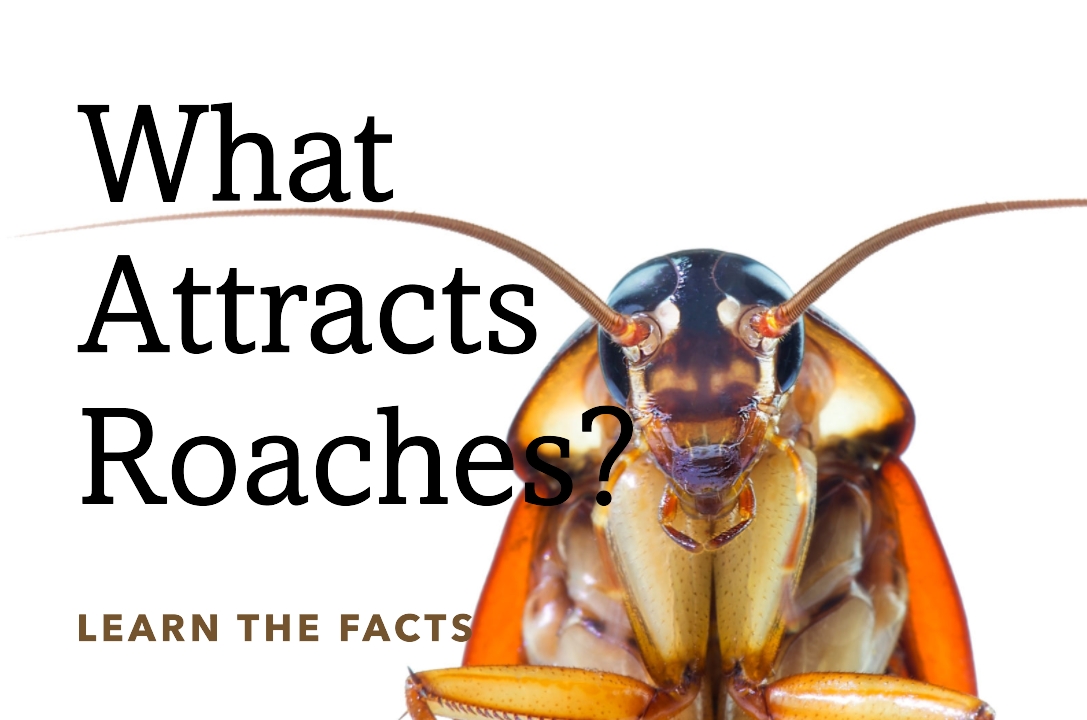It’s a common and dreaded sight: roaches scurrying across your floor or kitchen counter. But have you ever wondered what attracts roaches in the first place? In this comprehensive guide, we will explore the reasons behind these pesky infestations, share some real-life examples, and provide step-by-step instructions to prevent and eliminate roaches from your home. With our help, you can say goodbye to these unwelcome guests once and for all.
Why Roaches are Attracted to Your Home
Contents
Roaches are attracted to your home for several reasons. They seek out warmth, moisture, food, and shelter—essentially everything they need to survive and reproduce. Let’s dive deeper into each of these factors:
- Warmth and Moisture: Roaches thrive in warm and humid environments. Damp areas like kitchens, bathrooms, and basements provide the perfect conditions for roaches to live and breed. That’s why you may often find them under sinks, near pipes, or in dark, damp corners. In some areas, like Florida or Hawaii, roaches are especially prevalent due to the warm and humid climate.
- Food: Roaches are scavengers and will eat almost anything, from crumbs and leftover food to garbage and even other insects. A single crumb on your kitchen floor may not seem like much, but it can be a feast for a roach. Keeping your home clean and free of food debris is essential to keep roaches at bay.
- Shelter: Roaches love to hide in dark, small spaces. They can often be found in cracks, crevices, and other tight areas, such as under appliances, inside cabinets, or behind baseboards. They are also known to nest and lay their eggs in these secluded spots.
Identifying Different Types of Roaches
There are several types of roaches that you may encounter in your home, such as the American cockroach, German cockroach, Asian cockroach, Australian cockroach, Brown-banded cockroach, and Oriental cockroach, to name a few. Knowing which type of roach you are dealing with can help you choose the most effective treatment method.
How to Prevent and Eliminate Roaches
Now that you know what attracts roaches to your home, it’s time to take action. Follow these steps to prevent and eliminate roach infestations:
- Clean your home regularly: Make sure to sweep, vacuum, and mop your floors, wipe down countertops, and clean up any spills or crumbs immediately. Don’t forget to clean under and behind appliances, as these areas can harbor roach nests.
- Store food properly: Keep your food in airtight containers and avoid leaving leftovers out for too long. Also, be sure to clean your pet’s food dishes daily and avoid leaving pet food out overnight.
- Seal cracks and crevices: Inspect your home for any potential entry points and seal them with caulk or other materials. Pay special attention to areas around pipes, windows, and doors, as well as any gaps in your walls or foundation.
- Eliminate sources of moisture: Repair any leaks, use a dehumidifier in damp areas, and ensure your home is well-ventilated. This will make your home less appealing to roaches.
- Use roach traps and baits: There are various traps and baits available, such as the roach bait gel, roach motel, and Advion Cockroach Gel Bait. These products can help you catch and kill roaches before they have a chance to reproduce.
- Apply natural repellents: Some natural remedies, like peppermint oil, borax, or diatomaceous earth, can deter roaches from entering your home. However, keep in mind that these remedies may not be as effective as professional-grade treatments.
- Hire a professional exterminator: If your roach infestation is severe or if DIY methods haven’t worked, consider hiring a roach exterminator. They can assess your situation, identify the type of roach you are dealing with, and recommend the most effective treatment plan.
Real-Life Examples and Stories
Sometimes, it helps to learn from other people’s experiences. Here are a few real-life examples of roach infestations and how they were resolved:
- The cluttered garage: A homeowner discovered a massive roach infestation in their cluttered garage. They had unknowingly provided the perfect environment for roaches to thrive, with plenty of hiding spots and easy access to food. After a thorough cleaning and decluttering, the homeowner used a combination of roach traps and insecticides to eliminate the infestation.
- The apartment building: An apartment building had an ongoing roach problem that affected multiple units. The property manager hired a professional exterminator who performed a thorough inspection and treated the entire building with a powerful roach-killing pesticide. The exterminator also educated the residents on proper food storage and cleanliness to prevent future infestations.
- The restaurant nightmare: A restaurant owner discovered a roach infestation in their establishment, posing a significant threat to their business. They contacted a commercial pest control company that specializes in cockroach control for food establishments. The exterminator applied a multi-pronged approach, including sealing entry points, applying insecticides, and setting up a regular maintenance plan to keep the restaurant roach-free.
Moving Without Taking Roaches With You
If you’re planning to move to a new home, the last thing you want is to bring roaches with you. Here are some tips to ensure you don’t accidentally transport these pests to your new place:
- Inspect your belongings: Before packing, carefully inspect all of your items for any signs of roaches or their droppings. Check inside boxes, bags, and containers, as well as in appliances, furniture, and electronics. Roaches can hide in the smallest spaces, so be thorough.
- Use new packing materials: Avoid using old boxes or other packing materials that may have been stored in infested areas. Instead, opt for new, clean materials to prevent any unwanted stowaways.
- Clean your belongings: Before packing, clean and sanitize all items, paying special attention to kitchen appliances and other items that may have come into contact with food. This will help remove any roach attractants.
- Treat your items: If you suspect that some of your belongings may be infested, treat them with insecticides or other roach-killing products. Be sure to follow the product instructions carefully to avoid damaging your belongings.
- Hire a professional: If you’re unsure about how to prevent roaches from hitching a ride during your move, consider hiring a professional moving company that specializes in pest-free moving. They can help ensure that your move is roach-free from start to finish.
Final Thoughts
Roaches are unwelcome pests that can cause stress and discomfort in any home. By understanding what attracts roaches and taking preventative measures, you can significantly reduce the risk of an infestation. If you do find yourself dealing with a roach problem, follow our step-by-step guide and consider seeking professional help if necessary. With the right tools, techniques, and a bit of persistence, you can successfully reclaim your home from these unwanted invaders.
FAQ about What Attracts Roaches
Q: What do roaches eat?
A: Roaches are omnivorous scavengers and will eat a wide variety of foods, including human and pet foods, crumbs, grease, decaying organic matter, and even non-food items like glue, paper, or cardboard.
Q: Can roaches survive without food or water?
A: Roaches can survive for a surprisingly long time without food or water. Some species can live for up to a month without food and around two weeks without water.
Q: Do roaches prefer a specific temperature or humidity level?
A: Roaches generally prefer warm, humid environments, which is why they are often found in kitchens and bathrooms. However, they can adapt to a wide range of temperatures and humidity levels if necessary.
Q: Do roaches only infest dirty homes?
A: While it’s true that roaches are more likely to be attracted to unclean or cluttered environments, they can also infest clean homes. It’s important to maintain good sanitation practices and eliminate potential food sources to reduce the risk of infestation.
Q: Can roaches transmit diseases?
A: Yes, roaches can carry and transmit a variety of harmful bacteria, viruses, and parasites, which can lead to illnesses such as food poisoning, diarrhea, and allergies. This is why it’s crucial to address a roach infestation as soon as it’s discovered.
Q: Are certain roach species more attracted to homes than others?
A: Some roach species, like the German cockroach and American cockroach, are more commonly found in homes and buildings than others. However, any roach species can potentially infest a home if the conditions are suitable.
Q: Are roaches more active during the day or at night?
A: Roaches are primarily nocturnal and are more active at night. If you see roaches during the day, it could be a sign of a severe infestation, as they may be forced out of their hiding places due to overcrowding.
Q: How can I prevent roaches from entering my home?
A: To prevent roaches from entering your home, seal any cracks and crevices in your home’s exterior, maintain good sanitation practices, eliminate sources of food and moisture, and use roach repellents or traps as needed.
Q: Are there any natural remedies for repelling roaches?
A: Yes, there are several natural remedies that can help repel roaches, such as peppermint oil, borax, and diatomaceous earth. However, these remedies may not be as effective as professional-grade treatments.




